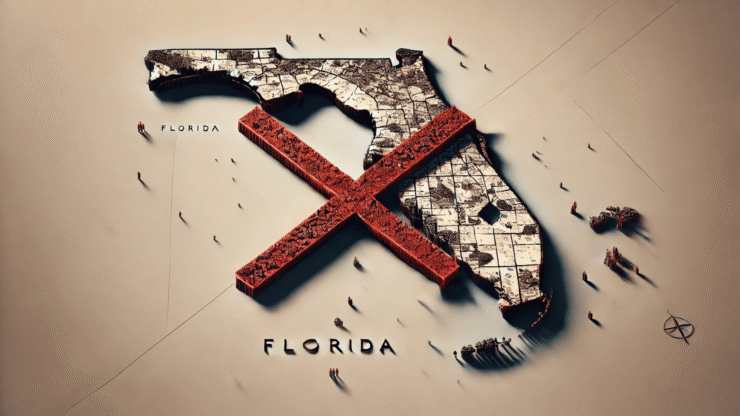Florida lawmakers have officially shelved plans to establish a state-level Bitcoin reserve, ending momentum behind two key bills that sought to integrate BTC into public fund management. House Bill 487 and Senate Bill 550, both introduced earlier this year, proposed granting the state’s Chief Financial Officer and the State Board of Administration authority to allocate up to 10% of select reserve funds into Bitcoin.
However, as of May 3, both proposals were marked “indefinitely postponed and withdrawn from consideration,” according to Florida Senate records. The legislative session, which concluded on May 2, passed over 230 other bills—addressing topics from water safety to smartphone bans in schools—but crypto investment legislation was notably excluded. Although the session has been extended until June to finalize the state budget, the Bitcoin bills are off the table for now.
Florida’s Decision Reflects Nationwide Retreat from State-Level Crypto Reserves
Florida’s withdrawal from its Bitcoin reserve initiative mirrors a broader cooling across the United States regarding crypto integration in public finance. Over the past year, states like Wyoming, North Dakota, Montana, South Dakota, Pennsylvania, and Oklahoma have similarly failed to push forward legislation involving digital assets in government reserves.
The setbacks underscore ongoing concerns around Bitcoin’s price volatility, regulatory ambiguity, and the operational risks of integrating crypto into traditional financial systems. Even in states with favorable crypto sentiment, lawmakers have remained hesitant to expose taxpayer funds to what is still widely viewed as a high-risk asset.
Arizona Came Closest—But Met With a Governor’s Veto
Among the states exploring Bitcoin reserve frameworks, Arizona advanced furthest. House Bill 1025, which passed both legislative chambers, would have allowed the use of seized funds to build a Bitcoin reserve. However, Governor Katie Hobbs vetoed the bill on May 3, citing concerns about the “untested” and “speculative” nature of digital currencies in public finance.
Her decision highlights the cautious approach many U.S. leaders continue to take, even as the broader market matures. The Arizona veto served as a high-profile reminder of how political risk and executive pushback remain major barriers to public crypto adoption—regardless of legislative progress.
Private Sector Continues to Embrace Bitcoin
Despite government reluctance, institutional interest in Bitcoin remains on a steep upward trajectory. Spot Bitcoin ETFs in the U.S. pulled in over $1.8 billion in inflows last week alone, pushing total assets under management past $112 billion. Major players like BlackRock and Fidelity are fueling this surge, adding legitimacy to the digital asset sector.
The disconnect between the public and private sectors highlights a fundamental divergence in crypto adoption. While Wall Street institutions aggressively position themselves in the space, state governments continue to take a wait-and-see approach—underscoring the regulatory and philosophical divide still shaping the future of Bitcoin in U.S. finance.
Quick Facts
- Florida has formally withdrawn its Bitcoin reserve bills, HB 487 and SB 550, halting legislative consideration of BTC-based public fund investments.
- Several U.S. states have backed away from similar crypto reserve initiatives in 2024, citing volatility and compliance concerns.
- Arizona advanced a Bitcoin reserve bill, but it was vetoed by Governor Katie Hobbs due to asset risk and financial stability concerns.
- Institutional demand for Bitcoin is booming, with spot ETFs drawing billions in new inflows—highlighting a sharp contrast between private enthusiasm and public hesitation.





